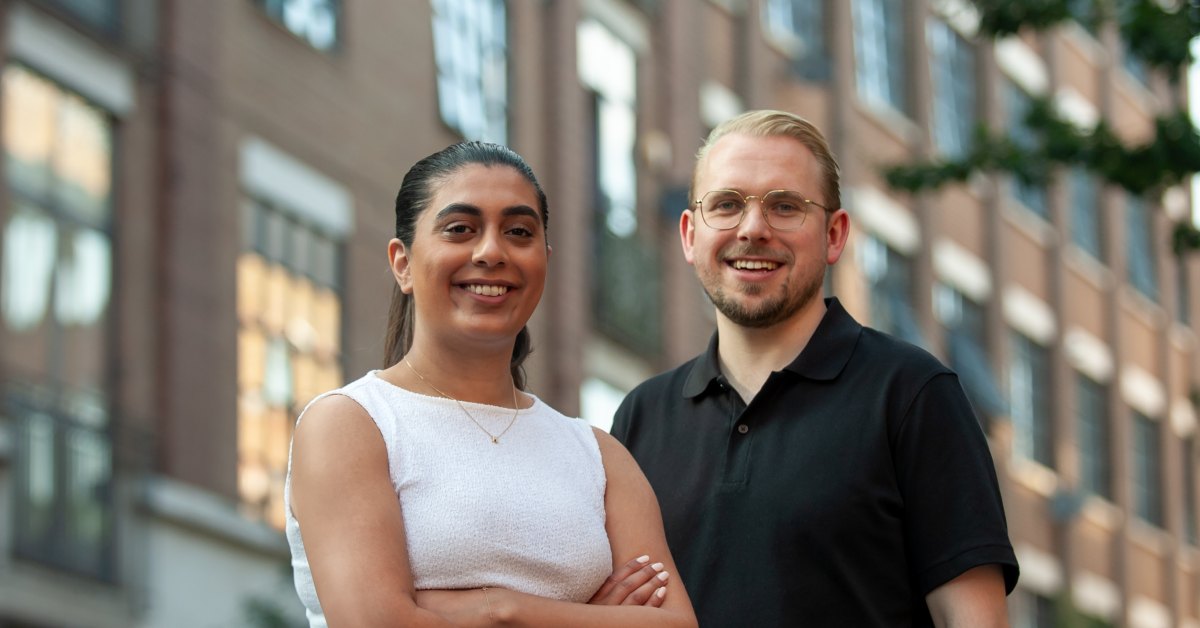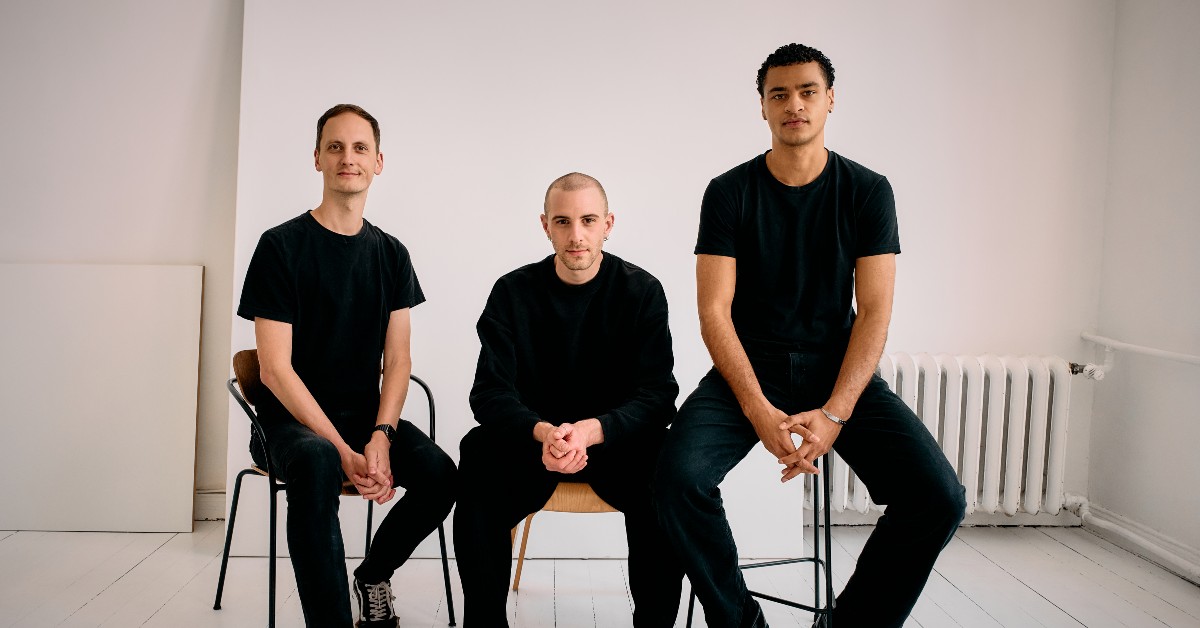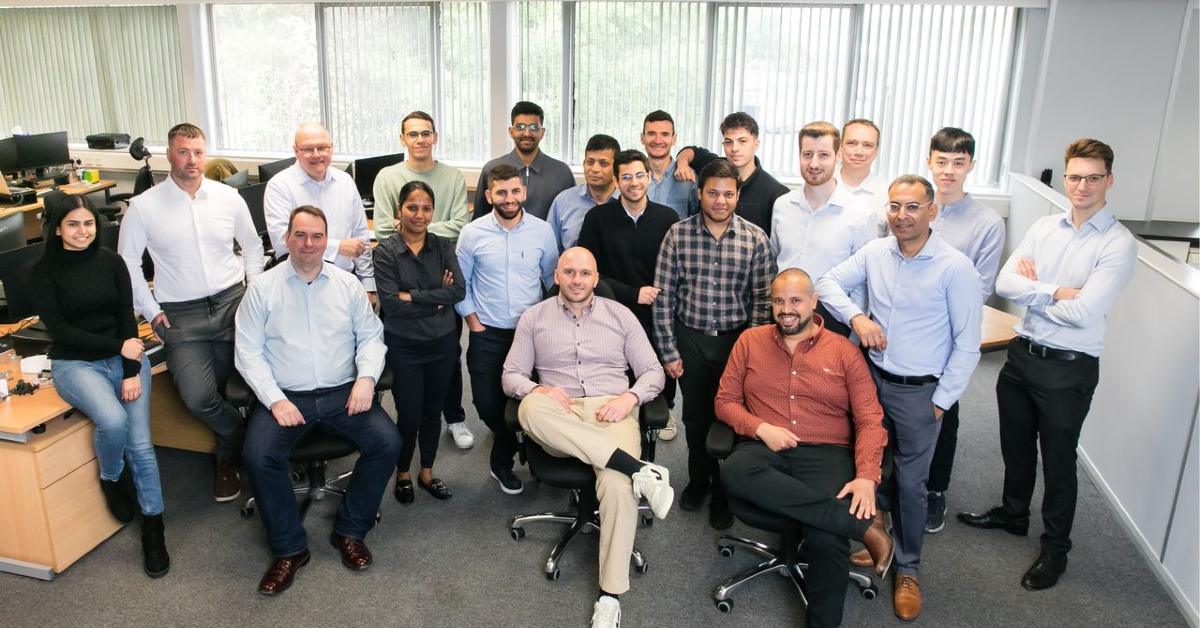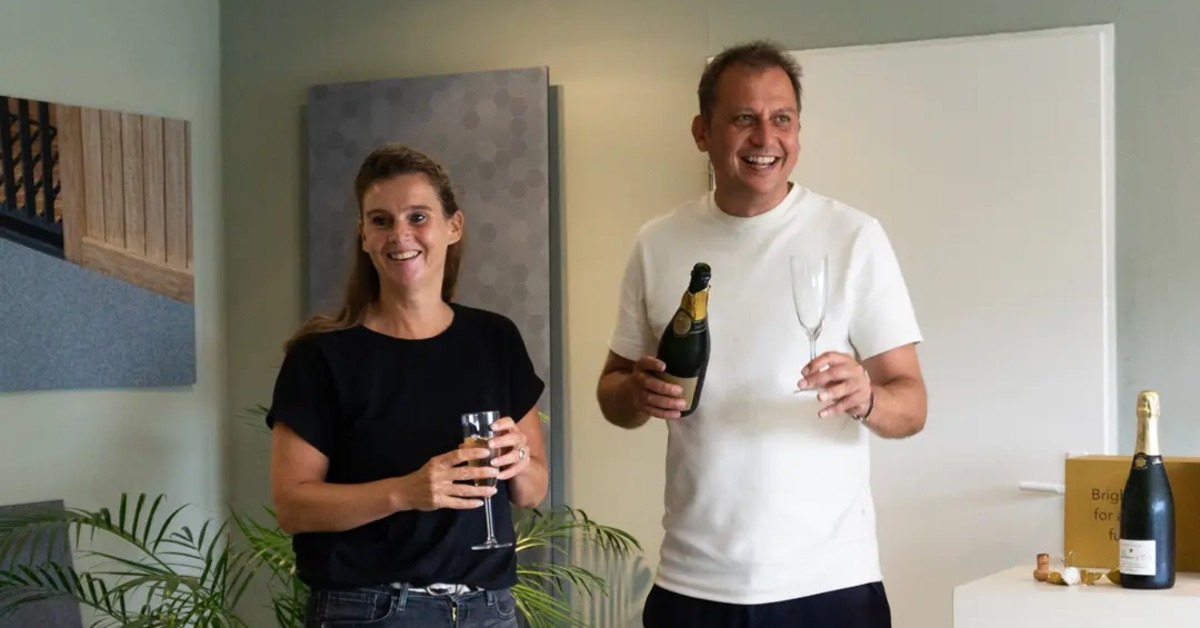Cycling along the idyllic cobbled streets of Amsterdam is the best way to experience its beauty – charming canal houses, tulips in full bloom, the historic Canal Ring (aka Grachtengordel). As the chill vibes of the capital city take over, you feel an overwhelming desire to slow down and savour everything that the city has to offer, be it the vibrant art scene, welcoming people, as well as its rich history and culture.
However, not everything about the city would make you want to slow down. Its thriving startup ecosystem is a living, breathing entity that’s growing and maturing rapidly. It’s buzzing with an entrepreneurial spirit, innovative drive, and ambition of its stakeholders – the ecosystem’s lifeforce. The excitement of being a part of something so dynamic and burgeoning definitely rubs off on you.
Every year, more and more entrepreneurs seem to recognise the potential of Amsterdam as a hub for innovation. They are making a beeline for Amsterdam’s flourishing startup ecosystem. According to a recent Dealroom/StartupAmsterdam report, the combined value of Amsterdam’s tech ecosystem has expanded to €73B, compared to €10B in 2015. This makes Amsterdam the third-ranked tech ecosystem in Europe, by the total value of tech companies founded since 2000. Another report ranks Amsterdam as the third best startup ecosystem in Europe, after London and Stockholm. Globally, the city stands in the 12th position.
However, avenues for improvement still exist, with certain challenges that need to be dealt with, and processes that need to be evolved. The stakeholders of the ecosystem are constantly striving to strengthen it and drive inclusiveness and collaboration. In order to better understand the ecosystem, we need to understand the homegrown success stories that this ecosystem has fostered, as well as of the global companies that chose Amsterdam as their expansion point.
Why choose Amsterdam
In a recent panel discussion – part of TNW2020 Digital edition – on scaling in Amsterdam 2020, Andrey Khusid, CEO of Miro, explains why Miro chose Amsterdam. “We opened our office in Amsterdam around three years ago. And, we didn’t have an office in Western Europe. So for us, there were several reasons. But one of those that can be mentioned was that Amsterdam, from my personal perspective, is a design centre of Europe and of the globe. And for us, being a visual and design-centric product, Amsterdam was an easy choice to pick up. So that was one of the reasons,” he says.
“Another reason was that I had a couple of angel investors here who decided to invest in the company and support it. I also had an advisor/executive coach who was also living here. He introduced me to some talent, who were the first hires to run our office.”
Miro is an online whiteboard platform for team collaboration. The company was founded by Andrey Khusid and Oleg Shardin in 2011 as RealtimeBoard, and rebranded as Miro in 2019. It has 460 employees in five global hubs, including San Francisco, Amsterdam, Austin, Los Angeles, and Perm.
He also comments that Amsterdam has been very welcoming, with very supportive people. He shares his personal experience of how he met Dieter Oude Kotte, Lead – International Business, StartupAmsterdam, and Senior Advisor at amsterdam inbusiness and how helpful Oude Kotte was in explaining the opportunities that Amsterdam has to offer for startups like Miro.
India-based Chargebee is one another startup that decided to set up its European headquarters in Amsterdam. In an exclusive conversation with Silicon Canals, Krish Subramanian, co-founder, and CEO of Chargebee says, “Amsterdam has one of the most open and transparent systems to incorporate and set up operations in Europe. With a large number of startups and technology companies already in the country, Amsterdam has world-class talent. Also, Amsterdam’s culture and environment encourage innovation and creativity. As some of the greatest artists, creators, and businesses have their roots in this city.”
According to Thierry Schellenbach, co-founder and CEO, of Stream, “We actually found that the level of talent in Amsterdam is very high. It’s a desirable place to live, so a lot of people from Europe are willing to move to Amsterdam. We have people from Portugal, Italy, Russia, and Poland, among other places, moving to Amsterdam. We also do remote nowadays, but many people moved to the office as well, so it’s been good.”
Read also: these fast-growing fintech companies in Amsterdam are hiring
Success stories
In order to strengthen the Amsterdam startup ecosystem, it’s imperative to analyse the success stories of various Amsterdam-based scaleups. This would provide a fair idea about how the ecosystem nurtured the growth of these fast-growing scaleups; some that have evolved into unicorns.
Adyen, Elastic, Booking.com, and TomTom are some of the Amsterdam-based unicorns. Payment services provider Mollie became the newest member of this fintech unicorn club, after raising a whopping €90M in its series B funding round, last month. This took the total amount raised by the company till now to €115M.
Talking about the pivotal moment when Mollie went from running fine, to running great, Ken Serdons, the chief commercial officer of Mollie, says, “There have been a few of these moments in our journey. The most recent one, which really boosted the company, was the series A investment we had a year ago. Up to that point, Mollie had always been bootstrapped, consciously investing in further growth while maintaining overall profitability . hat’s a great mentality, which I would definitely recommend for any business in its early days. This way you optimise everything from product to efficiency, and that’s a good foundation for growth.
“With that investment, we started to think much bigger, much more international. We started attracting more senior talent and also had bigger ambitions. And that’s why we really doubled down. For example, in Germany, we’ve gone from four people to more than 20 people in less than a year. And we’re now growing 1,000%,” he adds.
Serdons also talks about the impact of COVID-19 on Mollie. He comments that, although they have been extremely lucky to be on the right side of the economy when the pandemic hit, they had to work hard to bolster their customer service and onboarding teams to help as many businesses as possible to transition from offline to online. “The demand for our services became almost too much to handle. We’ve scaled up since, but of course, it’s never fast enough when it happens.”
The current state of Amsterdam startup ecosystem
Serdons believes that currently, the Amsterdam startup ecosystem is very strong. He also thinks that investors in Amsterdam are experienced and sophisticated, they know how to identify promising businesses, and they’re also willing to make strong commitments.
“You also have a lot of international investors who are interested now in businesses built in Amsterdam, which is really helpful. Amsterdam is seen as a great location for talent and as a hotspot for innovative businesses,” he notes.
He also agrees with Khusid’s perspective of Amsterdam being a design hub with product focussed innovators. Talking about the fintech ecosystem in Amsterdam, he says “There are several other players in Amsterdam that helped paved the way for fintech, that really helped a lot.”
Attracts international talent
Khusid shares that Miro has hired almost 100 people in the last year in Amsterdam, and is looking to hire even more. “We were scaling all parts of the operations here, product engineering, go-to-market, just regular operations, people operations,” he says.
He notes that apart from hiring talent from the local market, the company hires people from Australia, New Zealand, Brazil, Argentina, Hong Kong, Canada, and the US. He feels that there are a lot of people who we are willing and excited to relocate to Amsterdam.
“We had the opportunity to relocate people, and this makes our company very diverse. We have more than 40 different passports in our Amsterdam office. This is amazing, because people coming from different countries, with their kind of knowledge, perspective and viewpoints. And this creates a really diverse ecosystem,” he says.
According to Serdons, “ Amsterdam is a very welcoming place. That image is very strong internationally, as well. The 30% ruling, for example, is a really great tool to attract international talent.”
Internationals employees who have been recruited from abroad for a position in the Netherlands may be eligible for the 30% tax ruling. According to Iamsterdam, the 30% reimbursement ruling (also known as the 30% facility) is a tax advantage for highly skilled migrants moving to the Netherlands for a specific employment role. When the necessary conditions are met, the employer can grant a tax-free allowance equivalent to 30% of the gross salary subject to Dutch payroll tax. Employees applying for the 30% ruling after January 1, 2019, receive the benefit for 5 years.
He also believes that the high standard of healthcare and education in Amsterdam is also an important contributing factor for international employees to choose Amsterdam.
“We’ve also relocated international hires to Amsterdam and other travel regularly to Amsterdam from other offices. Schiphol airport is also convenient, close to the city. All these things really work in favour of Amsterdam” he says.
Room for improvement
Although Amsterdam has a mature and fast-growing startup ecosystem, there’s still room for improvement.
Serdons finds the Dutch employment system and laws restrictive at times. “When I used to work in the UK, it was really easy to hire people and contracts were more flexible. For example, in the Netherlands, the length of probation periods is limited to 1 or 2 months. For complex roles, 2 months is often not enough to evaluate whether there is a great fit. So you often only have the option to offer fixed-term contracts. ”
Serdons says that potential hires, especially for senior roles, who are looking to move internationally, are unlikely to sign up to a 12-month contract. “You’re not going to move the entire family here if you’ve only got security for 12 months.”
He adds, “Similarly the procedure to terminate employment contracts can be complex and long. That is limiting the opportunities for a company to take risks and to hire fast.” He believes it would be more helpful for startups if employment contracts were more flexible.
Khusid also agrees that handling the hiring and termination contracts is way easier in the US, Russia. He believes that in the Netherlands, it can cause some friction.
He also believes that the long-term real estate contracts are not particularly suited for startups, as fast-growing startups can outgrow their office spaces very quickly, leading to penalties.
Future
“We believe and we bet that Amsterdam will be the biggest hub for Miro across the globe. It’s the only hub where we hire for both go-to-market and product engineering positions. In the US, we almost have a go-to-market. In Russia, we have the engineering part of the business. But this is the hub where we grow both sides, and it’s growing way faster than the other hubs,” says Khusid.
According to Serdons, Mollie’s biggest growth will still be in Amsterdam. The company went from 180 to 300 people in the last 12 months, and the majority is still based in Amsterdam. Mollie is looking to hire more, especially more product and engineering staff. “For Mollie, Amsterdam will always be home; it’s a great place.”
Image credits: Dennis van de Water/Shutterstock










01
From telecom veteran to Dutch Startup Visa success: The Jignesh Dave story